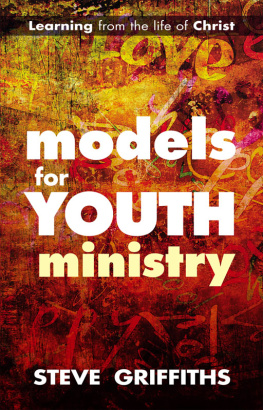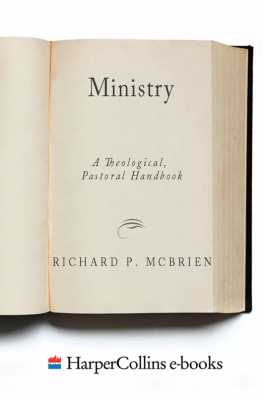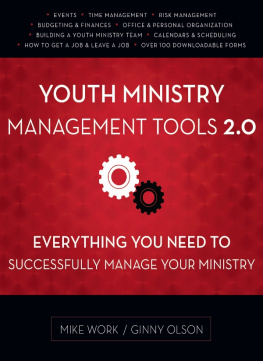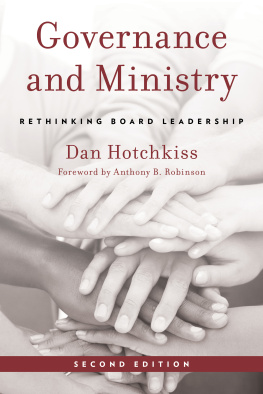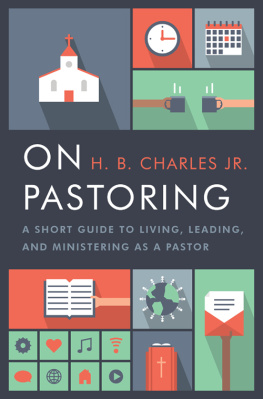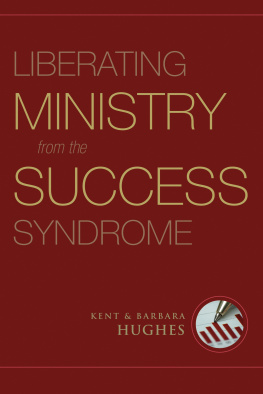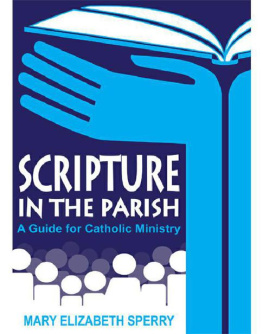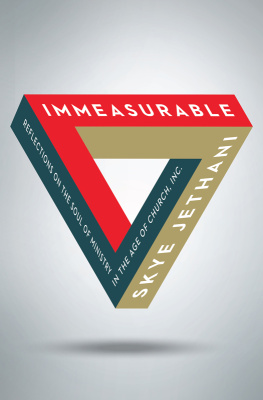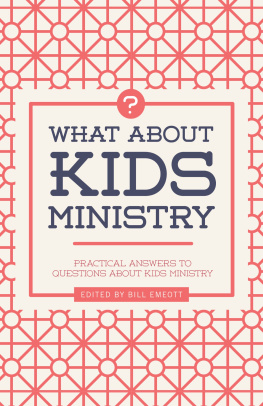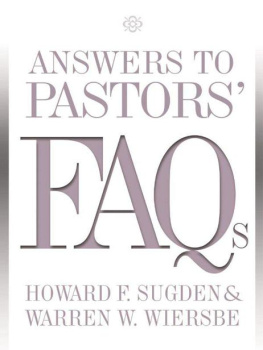An Ebenezer Story

Introduction
T his book is a description of the pastoral ministry. In it I attempt to answer questions such as, when the pastoral ministry happens,
- What does it look like?
- What does it feel like?
- What is it?
My answers come from the inside out. I have not studied the pastoral ministry from a dispassionate, objective standpoint. I have written as an interested party. I have written from the subjective standpoint of being a pastor.
When I began pastoral ministry, I had lots of books prescribing pastoral ministrythe so-called how-to books. I had books on how to preach, how to administrate a church, how to do pastoral counseling and how to lead small groups. They didnt help me. The authors assumed too much. They assumed that I knew what my goal was. They assumed that I knew what I was and who I was. They assumed that I knew why I was supposed to be doing the things they were teaching me about. But I didnt know what I was, or who I was, or why I was supposed to be doing the things I was supposed to be doing. And I didnt know how any of the things I was supposed to be doing fit into a coherent understanding of my call from God to be a pastor.
So I stopped reading how-to books. Instead I read theology, biblical studies and church history. I alternated between the disciplines. These books from the classical disciplines of theology didnt teach me how to do pastoral ministry, but they helped me immensely in my regular duties. I discovered that spending a day reading thirty pages of Karl Barths Dogmatics helped me more in my pastoral work than a hundred of pages of how-to literature.
In my church history reading I ran into a biography of a pastor, The Life of Alexander Whyte ; a personal narrative of a pastor, The Letters of Samuel Rutherford ; and a fictional account of a pastor, Father Zossima in Feodor Dostoyevskys The Brothers Karamazov. Alexander Whyte, who finished his long career in the early part of the twentieth century, pastored a large church in Scotland. Samuel Rutherford, a Scottish pastor from the 1600s, wrote his letters during times of persecution. Father Zossima is a portrayal of a Russian monk of the 1800s.
These books helped me a lot. But I didnt know why stories about pastors who lived centuries ago could help me so much. I thought I was supposed to be a modern pastor, relevant to the world around me; and these books were from different worlds. But as I read these stories I felt myself caught up in the protagonists struggles to follow Jesus Christ in their daily lives.
These narratives pointed me to the fact that pastoral ministry is a life, not a technology. How-to books treat pastoral ministry like a technology. Thats fine on one levelpastoral ministry does require certain skills, and I need all the advice I can get. But my life as a pastor is far more than the sum of the tasks I carry out. It is a call from God that involves my whole life. The stories I read helped me to understand my life comprehensively. My life, too, is a story, and it is the narrative quality of my life that makes my ministry happen. Others see and participate in the story as it is told. I have discovered that when I follow Jesus in my everyday life as a pastor, people meet Jesus through my life.
This is not a new idea. It is a simple observation, perhaps the most basic principle of evangelism, that we lead people to Christ through living simple lives of love.
What is new about this book is that I attempt to describe why it is that people meet Jesus in our lives when we follow Jesus. Even more, I have attempted to describe how and why following Jesus is the central principle of pastoral ministry, the comprehensive principle that integrates every task.
The thesis of this book is that people meet Jesus in our lives because when we follow Jesus, we are parables of Jesus Christ to the people we meet. This book is a description of the pastor as a parable of Jesus Christ.
Since this book is about the pastoral ministry as a narrative, the book itself is a narrative, the story of my life as a pastor. It is, specifically, the story of my life as pastor of the Florence-Victor Parish, a two-church, yoked parish in the Bitterroot Valley of Montana, which I served from January 1983 to April 1992.
This book contains more than the story of my nine-year pastorate. As I attempted to describe and understand my life as a pastor, I was forced again and again to refer to other experiences in my life. For instance, I found that I had no choice but to describe my conversion experience.
This raises the question of why my conversion story, or any story I tell about myself, should have any relevance to you and your ministry. By recounting my conversion experience, I do not want to imply that you must have had a conversion experience like mine in order to be a pastor. What I do want to imply is that your conversion has great implications for your ministry. Just as I have looked carefully into my conversion experience (and many of my stories) to understand my ministry, you must also look carefully at your conversion experience (and many of your stories) to understand your ministry.
Thats the beautiful thing about narrative. As you read my investigation of my experience of ministry, you are not asked to duplicate my experience of ministry. Rather, you are invited to investigate your experience of your ministry. As I tug you through my exploration, I hope that you will be doing exploration too.
This book is a weaving of stories and didactic sections. Pay attention to both equally. But realize that I have given priority to the stories. Do not hurry through them. The didactic sections illustrate the stories, rather than the reverse.
I apologize for the places in the book where you will be slowed down because my writing is poor. I am deeply aware of my shortcomings as a writer, and I wish I could have made it easier for you. On the other hand, I do not apologize for the fact that the pastoral ministry is filled with sticky, complex problems that can only be addressed with sticky, complex writing. I find that I cannot write an easy book about a hard subject. I only hope the book is not harder than the subject matter deserves!
Obviously this book is for pastors. But it is not just for pastors. I sincerely hope that this book can meet the needs of two other groups in the church.
If you are considering entering the pastoral ministry, this book will give you a glimpse of what it is like to be a pastor. I dont think how-to books can help you see and feel the life of ministry. I doubt that even the best book on how to preach a sermon can help you know what it is like to preach a sermon. This book, I hope, can help you feel what it is like to preach a sermon.
If you are a layperson, active in a church, and you want to know what your pastor is going through, this book may help you to understand. These days there is a gap between laypeople and pastors. Laypeople dont know what pastors do. Most of us pastors dont know what were doing either. These are difficult times for us.
Ill admit, too often we pastors just gripe. You may be justifiably tired of listening to our bellyaching. But sometimes your expectations for our ministries are askew. Sometimes you want things from us that we just cant deliver.
The great missing element in todays relationships between pastors and laypeople is trust. Trust comes from love and understanding. I warmly invite you to come into this narrative as one of us. Walk in our shoes for a little while.
It needs to be said that your pastor may not believe everything I write here, and you should not judge your pastor by what I say. (Then again, you may be glad that your pastors opinions dont always match mine.)


